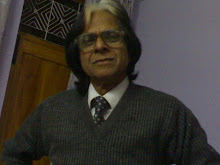Girish Karnad
& JNU
Girish Karnad tries to come to
the fore-front whenever he gets an opportune time to keep alive his wanning power and faded glory. On the
last two occasions – one on Naipaul’s episode and other on Tipu Sultan’s case -
he showed his emptiness of literary and historical contents for which he was
once known and awarded but he rested for all these decades on his past laurels
contributing nothing substantial or noteworthy beyond. Now he gets a chance to come to lime light
bringing Kanhaiya – a non-descript – as an excuse. What is common to both – Kanhaiya and
Karnad? Perhaps nothing apparently.
But certainly there is one element – divisiveness – a force that divides
people, communities or even the society, common to both. Karnad has emphatically mentioned that CN
Annadurai demanded a separate Tamil Country in Parliament in 1961. Perhaps karnad does not know the privilege of
a Member of Parliament. Even otherwise this
does not mean that everybody has a right to demand for such division on every
occasion. India as a nation-state was
very soft during Nehru’s time. But it
had learnt a lesson and changed its course even during Congress regime. It became hard and gave a fitting reply to
Pakistan by creating Bangladesh. It was
hard stand but politically right decision.
Again, when JP gave a call for armed forces to revolt, on 25th
June 1975, the Congress regime dealt with iron hand. The governments are here to rule , not to
rein. If Rajnath Singh says that nobody
will be spared for anti-national and divisive activities he means it so. He is hard like a nut, an iron-willed
man. No government can afford to be ‘soft’. Anna was not a terrorist. He was a nationalist. And he was able to be moulded through
political persuasion. But now in the
times of terrorism (internal or external) a soft action would deteriorate the
country. Girish Karnad must remember
that his utterances would diminish the image of our country.
How has Girish Karnad joined the
band-wagon of JNU group without any sense of JNU’s historical growth and it
deep dyed communist ideology. Needless
to say the whole of JNU cannot be blamed for shameful activities on the campus
but the support given to such activities by the students and the faculties or
remaining mute for not condemning the same is a matter of great concern. As the body gets cancerous at one point but
slowly the disease spreads all over the body, the same applies to JNU. Which are those elements that invite
terrorists on campus? Who allows anti-national
elements to dominate the campus? To be
truthful, frank and blunt, faculty-members and students in general and VC in
particular are responsive for this sorry state of affairs at JNU.
Karnad is well aware of the fact
that he is giving fuel to the fire. His
urge to increase his political graph will lead him to nowhere but nearer to
Afzal Guru’s ideology. Is he prepared to
choose that path?
